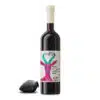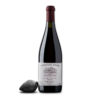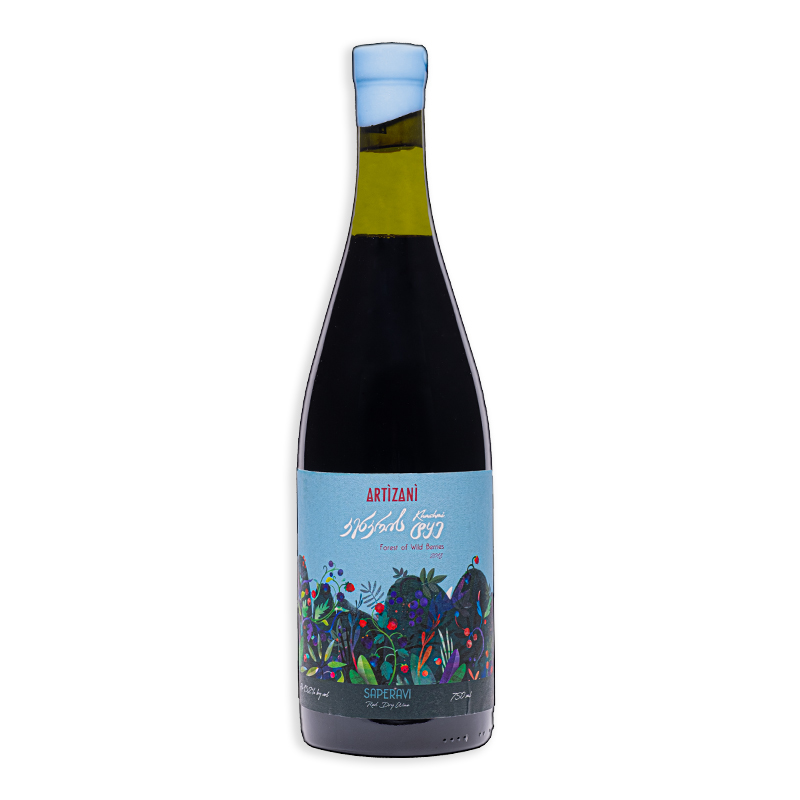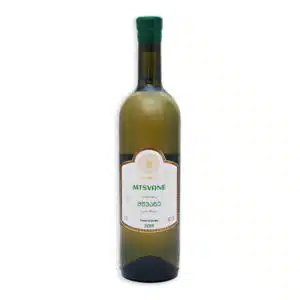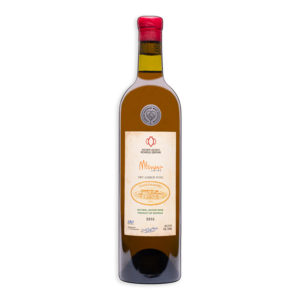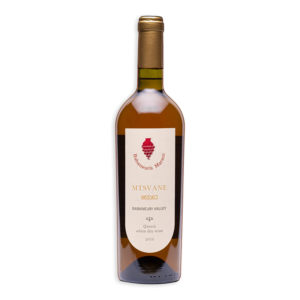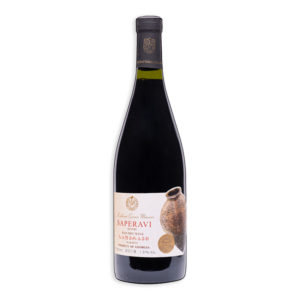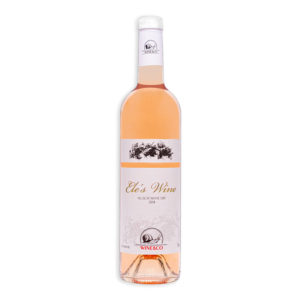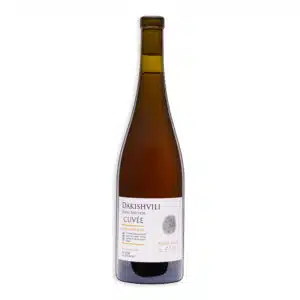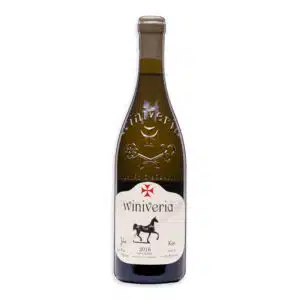Artizani Saperavi 2021
€17.45 Original price was: €17.45.€13.09Current price is: €13.09.
A completely naturally produced wine, free of additives (including no added sulphite). A beautiful deep red color obtained from one of the best regions of Kakheti for the Saperavi grape: Khashmi. And with fruity aromas with a fresh acidity, a real pleasure to drink!
Vivino score:
In stock
The Artizani wines are made without technological advancements; the only interventions by the winemaker are: setting harvest dates, deciding on maceration * duration, agreeing on the proportion of the skin and stems, participation of lees in the winemaking process, and selecting the theorem method.
The winemakers have chosen to macerate this Saperavi wine for only 7 days, for several reasons essential to their winemaking philosophy:
• First, the amount of anthocyanin extraction is highest after 6-7 days of maceration, then the amount starts to decrease when the stems begin to absorb it. Thus, the 7-day process is optimal to extract the necessary compounds for color stabilization and to achieve desired properties;
• Moreover, since Artizani winemakers do not add sulfites to their wines, they are not expected to last 10-15 years. That is why we limit the amount of tannins that end up in the wine through 7 days of maceration: in this way, our wines are beautiful when drunk the following year;
• Additionally, the presence of skins and stems creates a “wine cap” which increases the fermentation temperature over time. However, by stopping after 7 days, they allow the rest of the alcoholic fermentation to continue at a cooler temperature, preserving more aromas and giving the wine a more fruity profile.
Malolactic fermentation is also carried out naturally, usually in spring. The winemakers measure the malic and lactic acid content to determine when the fermentation process is complete and distribute the wines accordingly. The temperature in their cellar is around 20-22°C during this period.
For winemaking, they only use stainless steel vessels.
Khashmi, where our grapes come from, is located at an altitude of 750 meters (one of the highest locations for Saperavi grapes) in the westernmost part of the Kakheti region. This region is known for its cool climate. The harvest in Khashmi begins in October (generally, the Saperavi harvest in Kakheti is in September). This results in grapes that are fresher in acidity and have a much more fertile profile.
* = Maceration refers to how long the grape skins stay in contact with the juice, so its duration may not necessarily be equal to the duration of fermentation. The maceration method depends purely on the winemaking style, the grapes, the season, etc. For example, wine can begin and end with alcoholic fermentation without any maceration if the winemaker chooses so.
Related products
Wine Country
Wine Country
Wine Country

